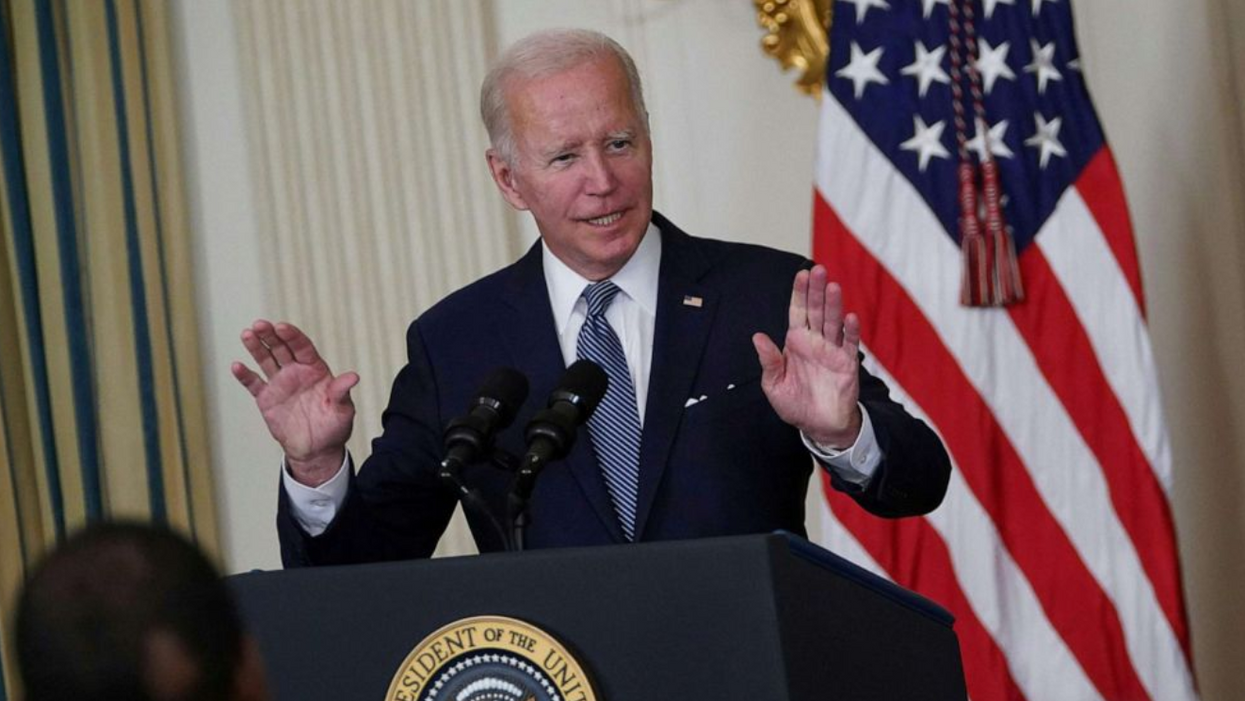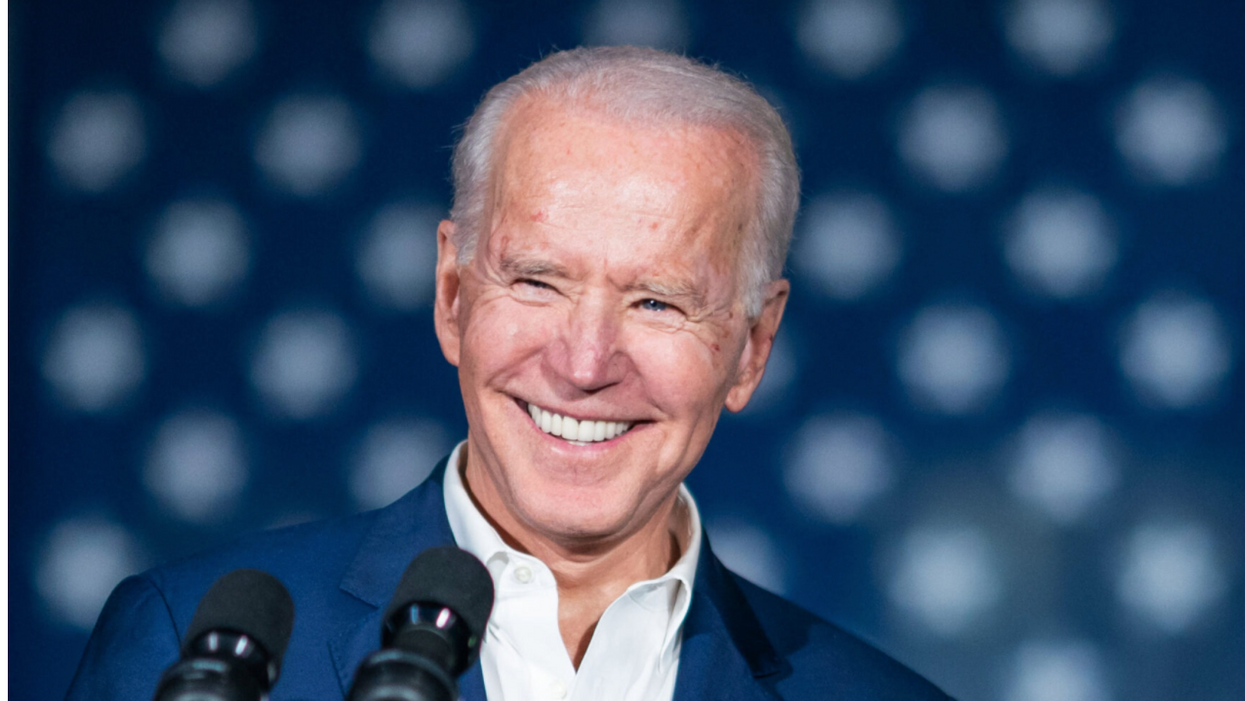The Sudden And Remarkable Resurgence Of 'Sleepy Joe' Biden
Meanwhile, back at the ranch…
To readers of a certain age who grew up watching cowboy movies on TV, that timeless phrase signals a major plot development. Maybe the scheming rancher with the mustache is ordering his henchmen to saddle up. Alternately, a hero in a white hat may be entering the fray.
Either way, somebody’s about to get a surprise.
Sometimes politics works that way too.
One year ago, I posted the following on my Facebook page: “Regarding Biden's speech about the Afghan collapse: I haven't seen such passionate unanimity among the DC commentariat since they went all-in on the absolute necessity of invading Iraq.”
Pretty much from that day, Joe Biden has been depicted in the national political press as the proverbial Dead Man Walking. “Sleepy Joe” as Donald Trump dubbed him, was headed for a mid-term shellacking.
Come November 8, 2022, resurgent Republicans would take over both houses of Congress and spend the remaining two years of Biden’s futile presidency investigating his troubled son, Hunter. Maybe Hillary Clinton too.
In retrospect, the Afghan retreat wasn’t such a catastrophe after all. After Trump surrendered to the Taliban, agreeing to leave Afghanistan without consulting its U.S.-backed government, the die was cast. Biden either needed to re-escalate or get out fast. One thing you won’t hear today is anybody keen to go back in. It’s both unthinkable and un-thought.
Then came sky-high gas prices and commodity inflation, making the president’s political future look dim. No matter which channel you watched, every TV news broadcast featured somebody griping at a gas pump or bitching about expensive eggs. On supposedly liberal CNN, Wolf Blitzer practically snarled “inflation” at every Democrat he interviewed.
And it was all Biden’s fault, particularly the parts he had absolutely no control over, such as the worldwide price of crude oil.
Let’s Go, Brandon.
Back at the ranch, however, Brandon got going. Or something. Due to additional circumstances beyond the U.S. president’s control, such as China’s sputtering economy, oil prices --and with them the cost of gasoline -- began to drop. And largely due to actions by the Federal Reserve, also outside Biden’s jurisdiction, inflation began to level off.
Syndicated columnist Froma Harrop noticed the supposedly liberal New York Times—sometimes I think that should be the newspaper’s official name—giving the president grudging praise: “Slowing inflation gave Biden a reprieve buthigh prices remain a political problem."
Still high, yes, but moving in the right direction.
Job growth, meanwhile, remained strong. Fully 500,000 Americans found new jobs last month. The news media started to notice that the national unemployment rate had reached a 50-year low. With gas prices dropping, how long before Americans noticed that the U.S. economy is actually quite strong? In politics, momentum counts.
And then came the Supreme Court’s decision overturning Roe v. Wade, essentially ruling that citizens in different states have different constitutional rights, and that women have fewer of them than men. Kansas voters turned out in record numbers to show what middle America thought of that—an electoral thunderbolt that imperils far-right Republicans.
“The situation has changed with astonishing speed," wrote New York Magazine’s Jonathan Chait. “In the span of a few weeks, Biden’s presidency is back from the dead and looking something close to triumphant.”
Even before the Democrats’ recent extraordinary legislative achievements —the Inflation Reduction Act, enacting higher taxes on profitable corporations, enabling Medicare to bargain down drug prices, giving the IRS resources to pursue wealthy tax cheats, and boosting green energy while supporting fossil fuel production in the meantime—polls had begun to show a marked shift in the Democrats’ direction.
Yes, a lot of it’s due to Sen. Joe Manchin’s extraordinary change of heart, but it was old Sleepy Joe who urged Democrats to understand where the West Virginian was coming from. Many progressive Democrats wanted to purge him. Fat lot of good that would have done.
Democrats have even gained a lead over Republicans nationwide in the so-called “generic ballot” asking voters which party they’re inclined to support in congressional elections. As the Washington Post’s Dana Millbank points out, it’s “the first time in the modern era" that “momentum has shifted toward an incumbent president’s party at this point in a midterm election year.”
Of course, polls are only polls, and anything can happen between now and November. The Biden administration has also gotten a lot of help from Republicans. Whatever possessed GOP Senators to vote against health care for veterans sickened by military “burn pits?” Or to kill legislation capping the price of insulin for diabetics?
Then there’s Old Unreliable, Donald J. Trump forcing himself into the spotlight again, the spittle-flecked face of Republican rage. So, what’ll it be, America? Steady Old Good-Government Joe or the Sideshow Ape Man, hooting and flinging feces?
America made this choice once, and decisively.
Must we really do it again?




